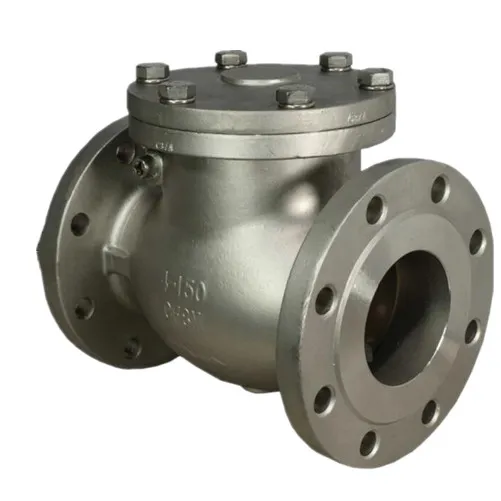Mobile:+86-311-808-126-83
Email:info@ydcastings.com
the impeller
Understanding the Impeller A Critical Component in Fluid Dynamics
The impeller is a fundamental component found in various mechanical systems, particularly in pumps and turbines. Its primary function is to impart energy to a fluid, allowing for the movement and circulation of liquids or gases. Understanding the design, function, and applications of impellers is crucial for engineers and technicians working in fields such as hydraulics, aerodynamics, and process engineering.
At its core, an impeller consists of a rotating disc or wheel equipped with blades that interact with the fluid. As the impeller spins, it creates a low-pressure area at its center, drawing fluid into the system through an inlet. The blades then push the fluid away from the center, converting mechanical energy from the rotating shaft into kinetic energy of the fluid, thereby increasing its velocity and pressure. This action is essential in a wide range of applications, from water supply systems to jet engines.
There are several types of impellers, each tailored to specific applications and fluid characteristics. Closed impellers, which have blades enclosed by a shroud, are commonly used in centrifugal pumps. They are efficient and capable of handling a variety of fluid types. Open impellers, on the other hand, have no shroud and are typically used for handling slurries and other fluids containing solids, as they prevent clogging.
the impeller

Selection of the appropriate impeller type is vital, as factors such as flow rate, pressure requirements, and fluid characteristics heavily influence performance. Engineers must consider aspects such as impeller diameter, blade design, and rotational speed when designing systems that require fluid movement. Performance curves, which illustrate the relationship between flow rate and head (pressure) at different speeds, are valuable tools in this selection process.
The application of impellers extends beyond simple fluid transport. In chemical processing, for example, impellers are integral for mixing and agitating solutions, ensuring uniformity and promoting reactions. In HVAC systems, centrifugal fans with impellers provide essential air circulation, enhancing comfort and air quality in buildings.
Furthermore, advancements in computational fluid dynamics (CFD) have allowed for improved design and optimization of impellers. Engineers can simulate fluid flow patterns and performance characteristics, leading to innovations that boost efficiency and reduce energy consumption.
In conclusion, the impeller plays a vital role in various industries, serving as a key driver for fluid dynamics. Its diverse applications, combined with ongoing technological advancements, underscore its importance in modern engineering. Understanding the intricacies of impeller design and function is essential for innovations that enhance performance and efficiency in fluid systems.
-
Why Should You Invest in Superior Pump Castings for Your Equipment?NewsJun.09,2025
-
Unlock Performance Potential with Stainless Impellers and Aluminum End CapsNewsJun.09,2025
-
Revolutionize Your Machinery with Superior Cast Iron and Aluminum ComponentsNewsJun.09,2025
-
Revolutionize Fluid Dynamics with Premium Pump ComponentsNewsJun.09,2025
-
Optimizing Industrial Systems with Essential Valve ComponentsNewsJun.09,2025
-
Elevate Grid Efficiency with High-Precision Power CastingsNewsJun.09,2025











